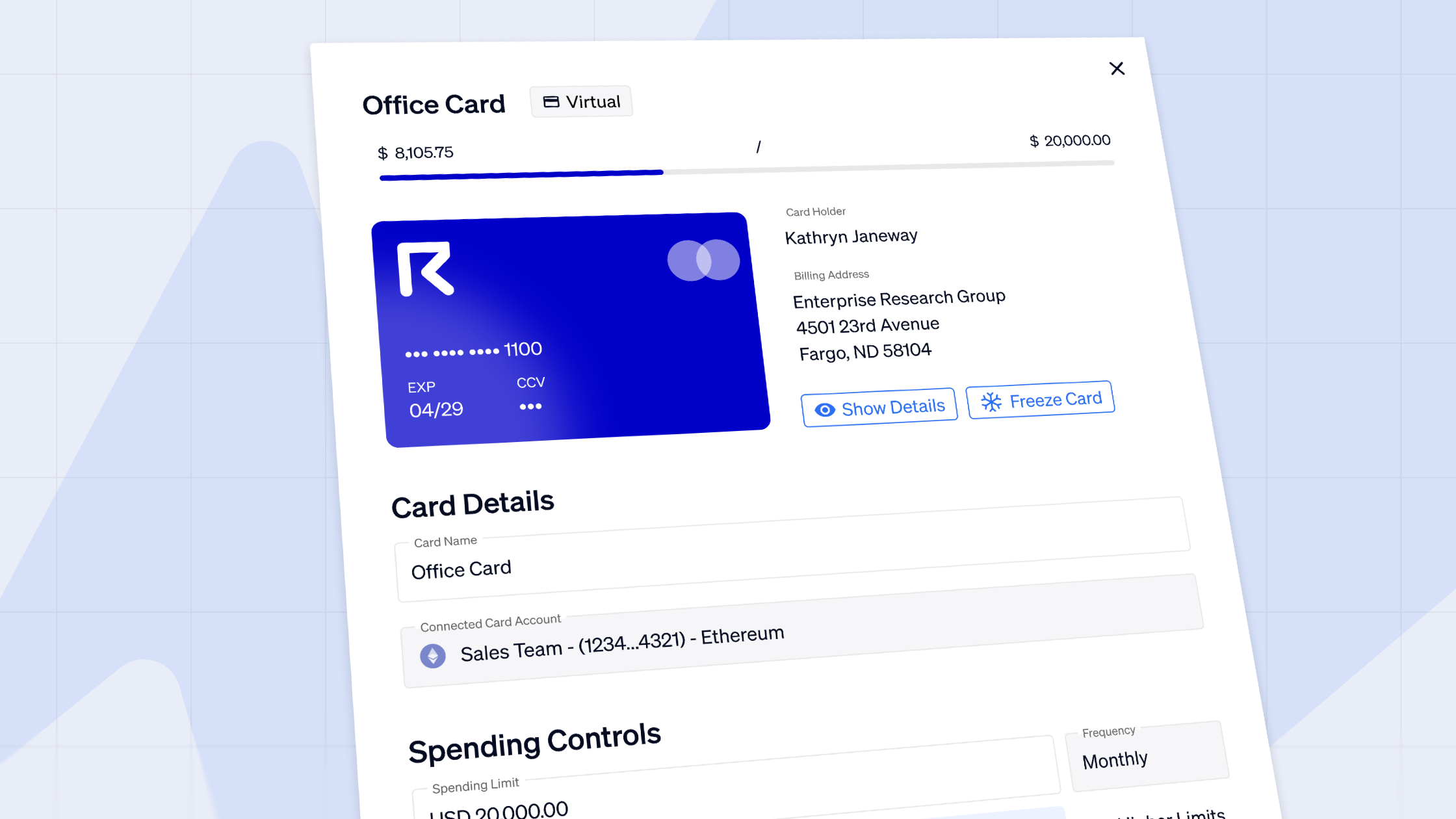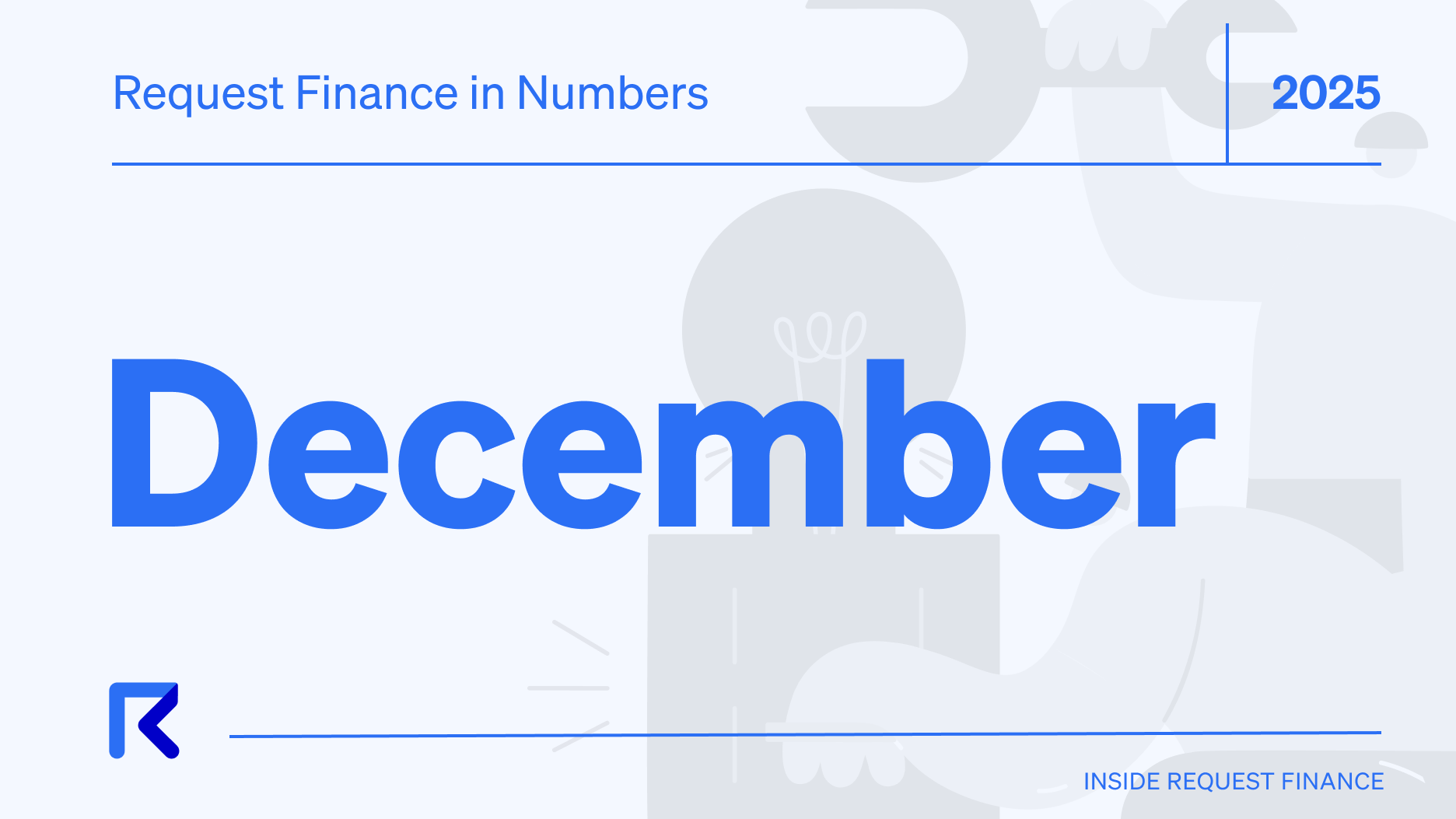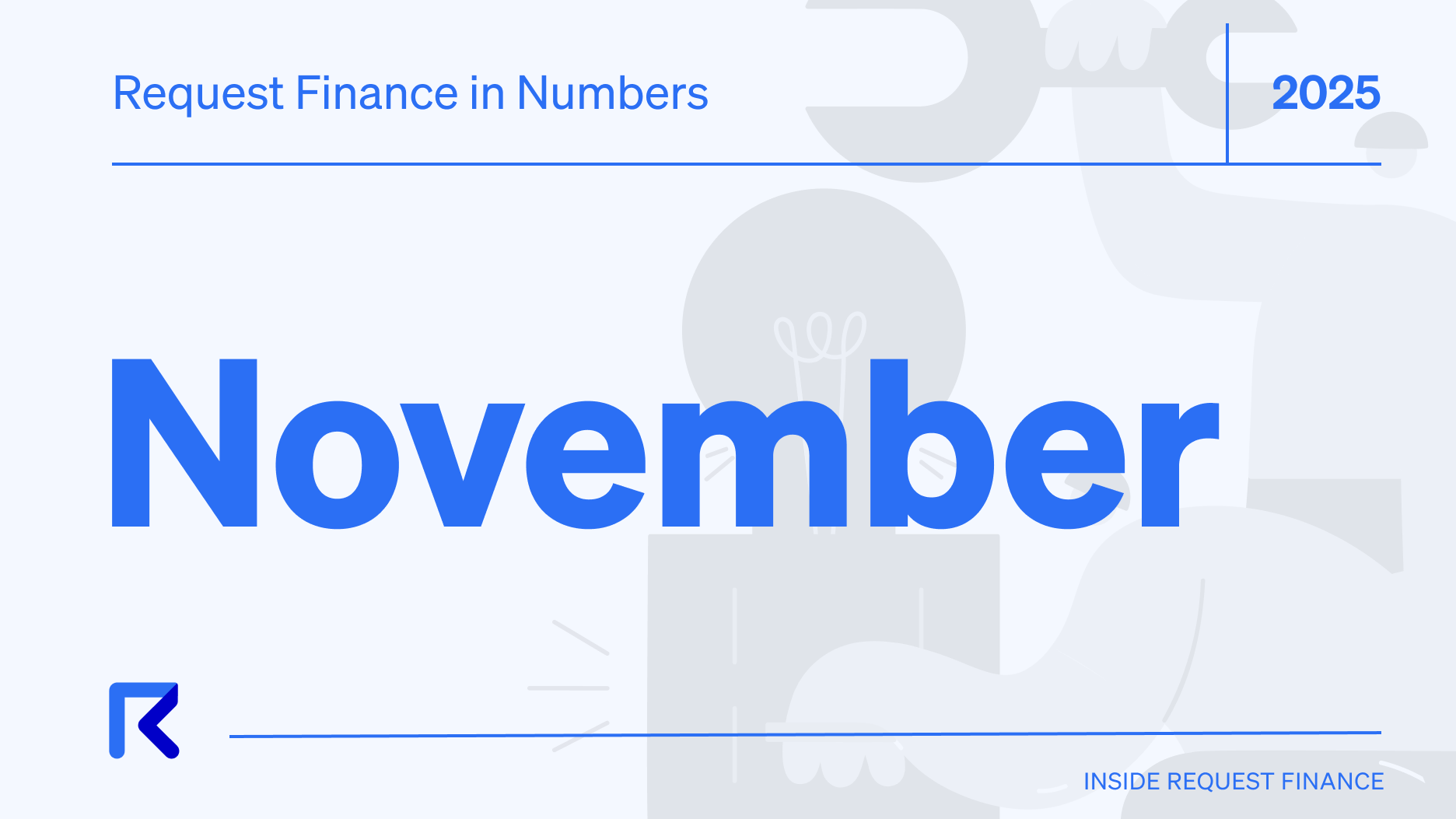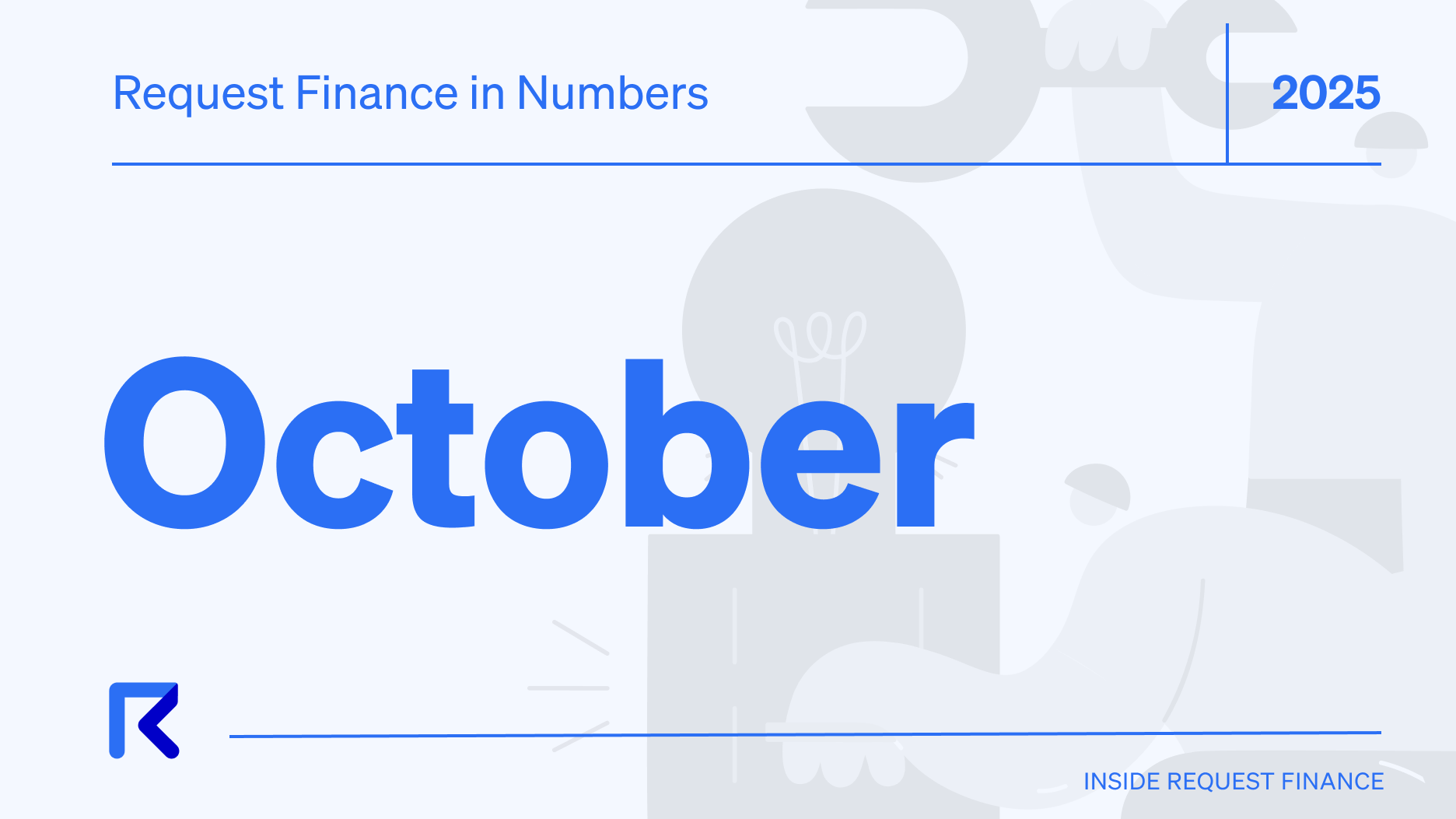Streamlining Crypto Payments: Best Practices and Tips for Effective Management
Discover the best practices for managing different types of crypto payments, including grants, airdrops, expenses, and payroll. Learn how you can maximize efficiency with Request Finance.

Whether you’re dealing with grants, airdrops, expenses or payroll, understanding the nuances and implementing best practices is essential for managing different types of crypto payments.
In this blog post, we’ll explore the different types of crypto payments and delve into the best practices for managing them efficiently.
If you’re a Web3 team aiming to streamline your crypto payments who is simply curious about the intricacies of crypto payments, we’ve got you covered.
Types of crypto payments
Grants
In Web3, where the open web thrives, there are generous grant programs that provide for the passionate builders of the open source community.
Grant programs fund research and development projects being built on the blockchain, exploring new use cases, or improving existing protocols. By supporting promising projects, grant providers hope to accelerate innovation and drive the adoption of crypto.
For example, the Ethereum Foundation’s Ecosystem Support Program (ESP) offers grants of up to $200k to projects that are working to promote the growth of the Ethereum ecosystem.These grants can range from funding for core protocol development to support for decentralized applications (dApps), tooling, education, and community-building efforts.
Other successful grant programs in Web3 include Aave Grants DAO, which has dispersed over $4 million among many projects, with funding ranging from a few thousand dollars to $100k.
It’s increasingly common for grant programs to offer payments in cryptocurrencies or stablecoins. Grant providers have to make these payments directly to multiple projects in diverse cryptocurrencies, which makes managing and tracking these payments a crucial aspect of grant management.
Airdrops
An “airdrop” refers to the distribution of free tokens by a Web3 project or token issuer, aiming to foster adoption and gain users for a new digital asset. By distributing tokens, projects aim to generate buzz, build communities, and encourage users to explore the features and potential of their project.
Some airdrops may require participants to complete specific tasks or meet certain conditions, such as holding a minimum balance of a particular token, staking existing tokens, or participating in social media campaigns. Others may be more random, selecting recipients from a pool of eligible addresses.
In the recent Arbitrum airdrop in March, over $1 billion worth of tokens were claimed by users within the first week.
However, airdrop campaigns can be messy. It’s a platform for scammers to deceive unsuspecting participants. They might create fake airdrop websites or send phishing links, tricking users into revealing their private keys or sensitive information.
The Airbitrum airdrop encountered significant issues including bugs, and attracted opportunistic individuals who persistently exploited Arbitrum’s reputation to promote phishing scams. The Arbitrum account was even temporarily suspended after it was erroneously flagged as spam with the huge number of scam Arbitrum accounts on Twitter.
If your project is looking to run airdrop campaigns, it’s important for you to foster trust within the community, and minimize the impact of scammers attempting to impersonate your project during the campaigns.
By maintaining a record of received tokens and facilitating accurate tracking of airdrop-related payments, it ensures timely token distribution for a smooth airdrop experience for participants while safeguarding your project’s integrity.
Ready to Supercharge Your Crypto Accounting?
Stop wasting time, manually creating journal entries. Automate your accounting now, and enjoy error-free reporting
Learn how to scale your company's crypto & fiat financial operations
Your financial complexities are our specialties. Schedule your free consultation today and discover how Request Finance can transform your financial operations
Simplify crypto and fiat financial operations today
Rely on a secure, hassle-free process to manage your crypto invoices, expenses, payroll & accounting.
Expenses
For remote Web3 teams who have their DAO or corporate treasuries in crypto and stablecoins, many choose to reimburse expenses in crypto to help simplify matching assets and liabilities.
Expenses encompass a wide array of transactions, ranging from purchases and subscriptions to operational costs and beyond. Individuals may incur various expenses related to their work, including travel expenses, meals and entertainment, education and training expenses, as well as office expenses.
FTX's infamous collapse last year shed light on the company's lack of internal controls, ultimately causing its downfall. Former employees and court documents revealed unchecked spending, including lavish travel, sports sponsorships, and luxury homes—some approved with emojis on Slack
Managing employee expenses can be burdensome, particularly with manual processing. This approach introduces delays and errors when reimbursing claims. Global Web3 teams, such as DAOs, face an additional challenge of reimbursing expenses like conference tickets in stablecoins, as most expense apps do not support crypto payouts.
Manual expense management is time-consuming, with the average claim taking 20 minutes to process. Multiply that by the number of claims per month, and it becomes a substantial drain on your business's time and effort, diverting resources from more valuable tasks.
Regular review and thorough auditing of expense reports are vital in detecting and preventing potential fraud. This involves going through records of expenses to identify any suspicious activities or unapproved expenditures.
By keeping detailed records of expenses, it helps maintain accurate financial records and mitigate the risk of fraud. It’s also crucial for claiming tax relief in most countries that the IRS requires.
Payroll
Web3 teams are increasingly utilizing crypto payroll as a means to hire talents globally and compensate their employees using crypto or stablecoins. Crypto payroll offers distinct advantages, particularly in reducing the high costs typically associated with cross-border payments.
When compared to traditional fiat payroll systems, which often involve multiple intermediary banks and substantial fees amounting to as much as 10% of the transfer value, crypto payroll presents a simpler and more cost-effective solution.
Employees can receive their salaries in crypto, providing them with flexibility and potentially benefiting from price appreciation over time.
But let’s be real, incorporating crypto payroll into business operations can be cumbersome. It involves understanding and adhering to legal and regulatory requirements, which may vary depending on the jurisdiction in which your company operates.
Web3 teams have to ensure compliance with labor laws and tax regulations and also enhance employee confidence and satisfaction with the payment process. It’s essential for companies paying in crypto to explore various tools to streamline the payment process, automate calculations and maintain comprehensive records of transactions.
Managing the different types of crypto payments involves implementing the best practices and utilizing effective tools.
Best practices in managing crypto expenses
1. Create detailed invoices for airdrops & grants
To establish transparency and accountability in the grant or airdrop payment process, it’s essential for grant providers and projects to create and maintain detailed invoices when making these payments.
As a payer, it can be frustrating to execute crypto transactions manually, which is time-consuming and not a safe process. This can cause a delay in processing payments which becomes a bad experience for the receiver.
Request Finance allows you to share a pre-filled invoice template that contains your business information with grantees and airdrop participants, so that they can fill out the rest of the invoice content such as name, wallet address, description, etc.

Once the invoices are sent to you, you can select and pay multiple invoices at once.

2. Keep a record of crypto payments
Another critical aspect of managing crypto payments is tracking. Keeping a record of paid invoices, pending invoices, and transaction confirmations is vital for transparency, financial reporting, and accountability.
Request Finance invoicing offers that facilitate efficient tracking, allowing grant providers and projects to monitor the status of payments, record transaction details, and reconcile invoices effortlessly.
If you’re a Web3 team paying and/or reimbursing your employees in crypto, using Request Finance’s crypto payroll and expenses solutions provide you the ability to easily review transaction histories, including the exact amount paid, to whom, when, and the market price at the time of payment.

3. Choose the right crypto wallet for storing crypto assets
Choosing the right crypto wallet is crucial for securely managing and storing crypto assets. There are different types of wallets available, each with its own advantages and security considerations.
Hot wallets are widely used and offer convenience by providing quick access to your coins. They are ideal for storing small amounts of crypto or for engaging in trading and using decentralized applications (dApps). However, their connection to the internet makes them more susceptible to hacking.
On the other hand, cold wallets prioritize security but sacrifice some convenience. The most common type of cold wallet is a hardware wallet, a physical device that securely stores your crypto keys. These wallets should be treated like secure deposit vaults, primarily used for safeguarding undeployed assets.
It’s always a good practice to have multiple wallets designated for specific purposes to minimize the risk of losing all your funds in the event of a security breach or technical failure. At the very least, your business should have two separate wallets: one dedicated to managing and growing your cash reserves, and another exclusively for sending and receiving payments.
In addition to choosing the right wallet type, there are other important security measures to consider. Wallets with fraud detection and prevention features can provide an extra layer of protection. Two-factor authentication (2FA) adds an additional security step during login. Seed phrase recovery is also crucial for wallet backup and restoration.
With Request Finance, you can easily integrate your business with all the best crypto wallets and manage payments with ease from a single interface, even if you use multiple wallets. If you want more actionable insights, illustrative case studies and best practices on choosing the right wallet for your business, this guide contains practical resources from over 250 Web3 finance and operation leaders.
By following these best practices, you can effectively streamline your crypto payment processes and ensure efficient management of your business’s crypto assets.
Crypto finance tips straight to your inbox
We'll email you once a week with quality resources to help you manage crypto and fiat operations
Trending articles
Get up to date with the most read publications of the month.
Our latest articles
News, guides, tips and more content to help you handle your crypto finances.











